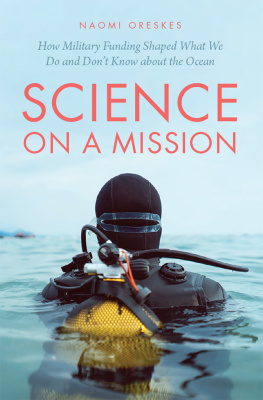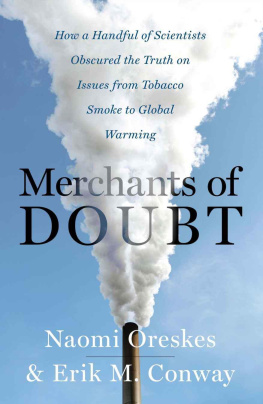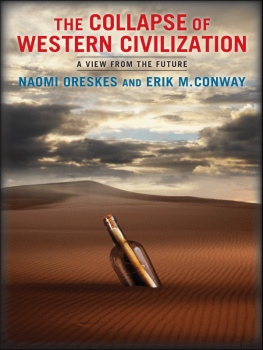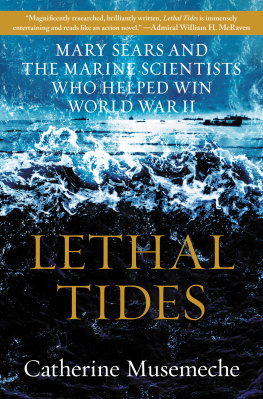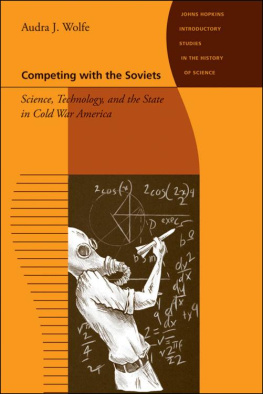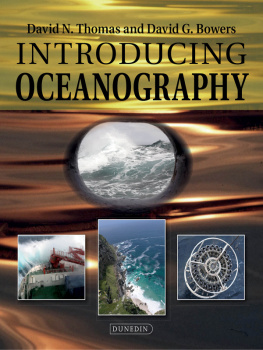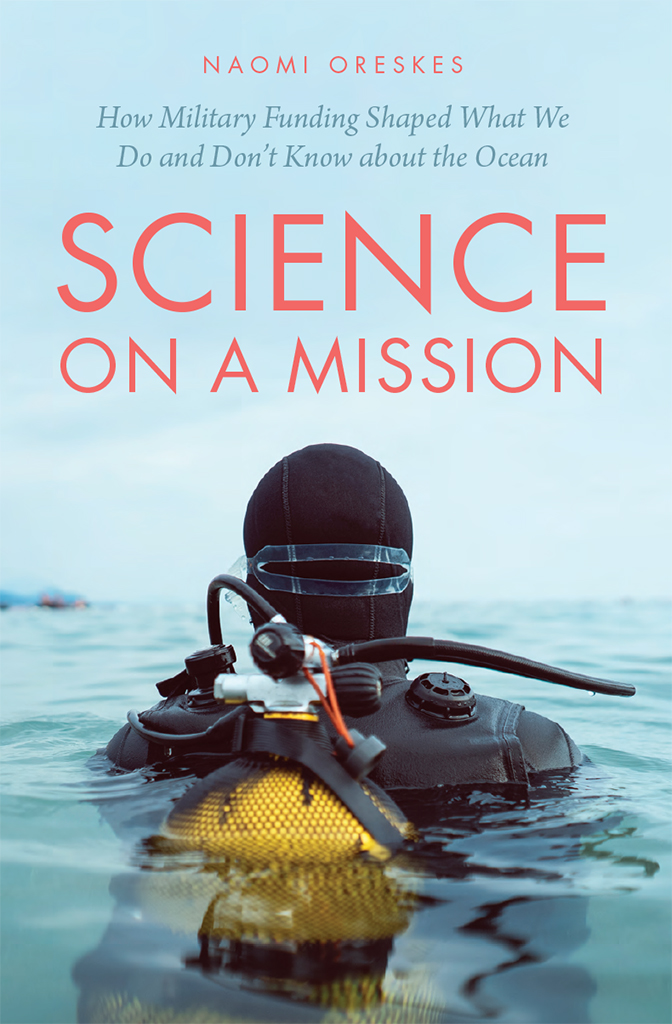
Science on a Mission
Science on a Mission
How Military Funding Shaped What We Do and Dont Know about the Ocean
+ + + + + + + + + + + + + + + + +
Naomi Oreskes
The University of Chicago Press
Chicago and London
The University of Chicago Press, Chicago 60637
The University of Chicago Press, Ltd., London
2021 by The University of Chicago
All rights reserved. No part of this book may be used or reproduced in any manner whatsoever without written permission, except in the case of brief quotations in critical articles and reviews. For more information, contact the University of Chicago Press, 1427 E. 60th St., Chicago, IL 60637.
Published 2021
Printed in the United States of America
29 28 27 26 25 24 23 22 21 20 1 2 3 4 5
ISBN-13: 978-0-226-73238-1 (cloth)
ISBN-13: 978-0-226-73241-1 (e-book)
DOI: https://doi.org/10.7208/chicago/9780226732411.001.0001
Library of Congress Cataloging-in-Publication Data
Names: Oreskes, Naomi, author.
Title: Science on a mission : how military funding shaped what we do and dont know about the ocean / Naomi Oreskes.
Description: Chicago : University of Chicago Press, 2021. | Includes bibliographical references and index.
Identifiers: LCCN 2020020806 | ISBN 9780226732381 (cloth) | ISBN 9780226732411 (ebook)
Subjects: LCSH: OceanographyResearchFinance. | OceanographyResearchUnited States. | Military researchUnited States.
Classification: LCC GC58 .O744 2020 | DDC 333.91/640973dc23
LC record available at https://lccn.loc.gov/2020020806
 This paper meets the requirements of ANSI/NISO Z39.48-1992 (Permanence of Paper).
This paper meets the requirements of ANSI/NISO Z39.48-1992 (Permanence of Paper).
To all the oceanographers, geophysicists and marine geologistspast and presentwho have worked to help us understand the sea around us, and to the archivists who have made it possible to tell their stories.
To Ronald Rainger and David van Keuren, who helped to pioneer the field of history of oceanography but found themselves prematurely sailing the seas of eternity.
And to Ken, who has surfed all the waves I have generated.
The growth of the profession of science to its present dimensions is not a sign of a spontaneous increase in the number of individuals gifted with natural curiosity, but of the realization of the value that science can bring to those who finance it.... Science uses curiosity, it needs curiosity, but curiosity did not make science.
J . D . BERNAL , The Social Function of Science(1939)
If oratorios could kill, the Pentagon would long ago have supported musical research.
ERWIN CHARGAFF , Heraclitean Fire: Sketches of a Life before Nature(1978)
Its amazing to me that the public is viewed as being so stupid that we would believe that the Navy is suddenly concerned about global warming.
MICHELLE WATERS , public comment C-36 on Marine Mammal Research Program Draft Environmental Impact Statement (1995)
Contents
Theres no such thing as tainted money, except t aint enoughso a senior colleague told me many years ago, when I was first raising money for my own scientific research.
On the negative side, however, the interests of patrons may cause scientists to focus on immediate answers to pressing problems at the expense of fundamental understanding (which, as we shall see in this book, many Cold War oceanographers feared would happen to their field). The pressure of external deadlines can cause scientists to take shortcuts, make mistakes, or miss important elements of a problem. The needs of funders may also introduce bias into the design of scientific studies, as when scientists funded by the chemical or plastics industries choose test animals known to be insensitive to the potential effects of concern, or into the data interpretation, as when scientists funded by the tobacco industry fail to find the adverse effects of smoking that their independent colleagues find.
Most scientists would like to think that these sorts of problems and pitfalls are rare and that scientistsboth individually and collectivelyare sufficiently smart and self-aware to recognize and avoid them. We like to think of Lysenko as the exception that proves the rulea grotesque intellectual expression of the broader horrors of Stalinism.
Next page
